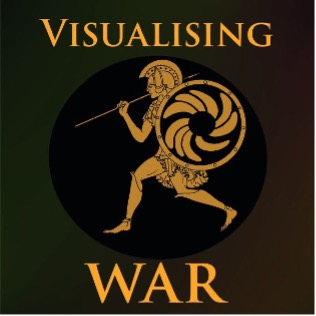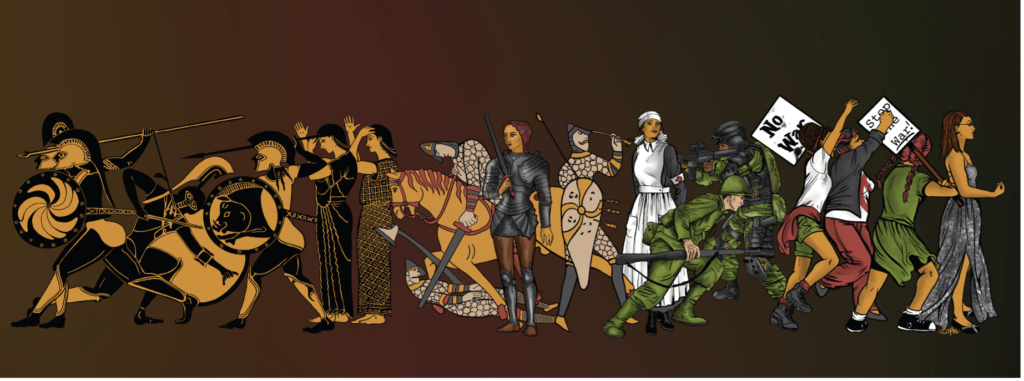The Visualising War Podcast

How do war stories work? And what do they do to us? Each week, the Visualising War project invites new guests onto its podcast to explore these important questions.
Led by Drs Alice König and Nicolas Wiater of the School of Classics, Visualising War is an interdisciplinary research project based at the University of St Andrews. It looks at how war gets represented in art, text, drama, music and many other kinds of storytelling. Exploring material from the ancient world to the present day, they unpick representations of various kinds of conflict from different periods and places. König and Wiater are particularly interested in the ways in which narratives of war have influenced each other across time and space, canonising recurring ideas about, for example, masculinity, self-sacrifice, leadership and nationhood. Above all, the project aims to shed new light on the ‘feedback loop’ between narrative and reality; that is, how the war stories we tell not only reflect past events but also influence us as individuals and shape the societies we live in.
In April 2021, König and Wiater launched a podcast, to generate more dialogue between academics from different disciplines and non-academic experts, and to involve members of the public in the conversation. They have featured a large range of guests: artists, conflict photographers, museum curators, dancers, theatre-makers, composers, librettists, authors, publishers, comic book designers, magazine editors, documentary makers, journalists, veterans, and experts on cosplay, war gaming and strategy making to name a few. Between April and November 2021, the podcast was downloaded over 5,000 times by listeners in more than 60 different countries, and each episode has sparked fascinating conversations between guests and listeners.
Researchers involved in the Visualising War project have benefited from the opportunity to engage with professionals who are involved in producing or disseminating narratives of war. Those professionals have in turn relished the opportunity to hear from storytellers in different industries and to engage with the research questions which the project seeks to answer. The podcast’s focus on the impact which different representations of war can have on how people think, feel and behave has already begun influencing the practice of some of the theatre-makers, artists and photographers who have been guests on the podcast. Their testimony has hugely enriched the research project’s inquiry into the forces that shape different habits of visualising war.
Three exciting new research strands have emerged from conversations on the podcast. A recurring theme across many episodes has been the importance of visualising war’s aftermath as much as war itself, and this has led to discussions about how we narrate conflict transformation, conflict resolution and peace building in different media. In response, Dr König has designed a Vertically Integrated Project on Visualising Peace, engaging undergraduate students from across multiple diverse schools in her research, and she and Wiater are working with practitioners and academics to explore future research and impact work in this space. Another theme to emerge from the podcast conversations is the impact of war stories on children and young people. Discussions with children’s authors and illustrators, war game designers, peace activists and other guests have led to Dr König teaming up with a conflict photographer, Hugh Kinsella Cunningham, and the NGO Never Such Innocence (which gives children and young people a voice on conflict) to design a series of projects for the coming years that will enhance the impact of her research still further. Finally, König has recently secured funding via the IWM 14-18 Now Legacy Fund to work with artist Diana Forster on a new project, visualising the rupture of forced displacement.

In short, the Visualising War podcast has more than fulfilled its aims, bringing a wide range of academics and other professionals into dialogue and forging new collaborative partnerships which will deepen understanding of how war stories work in many different media and contexts, and what impact they can have on how we view, imagine, conduct and prevent war.